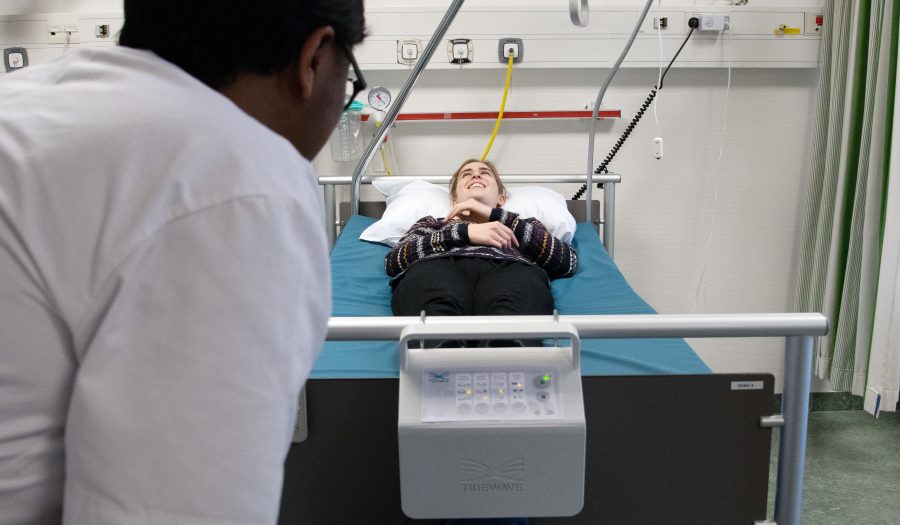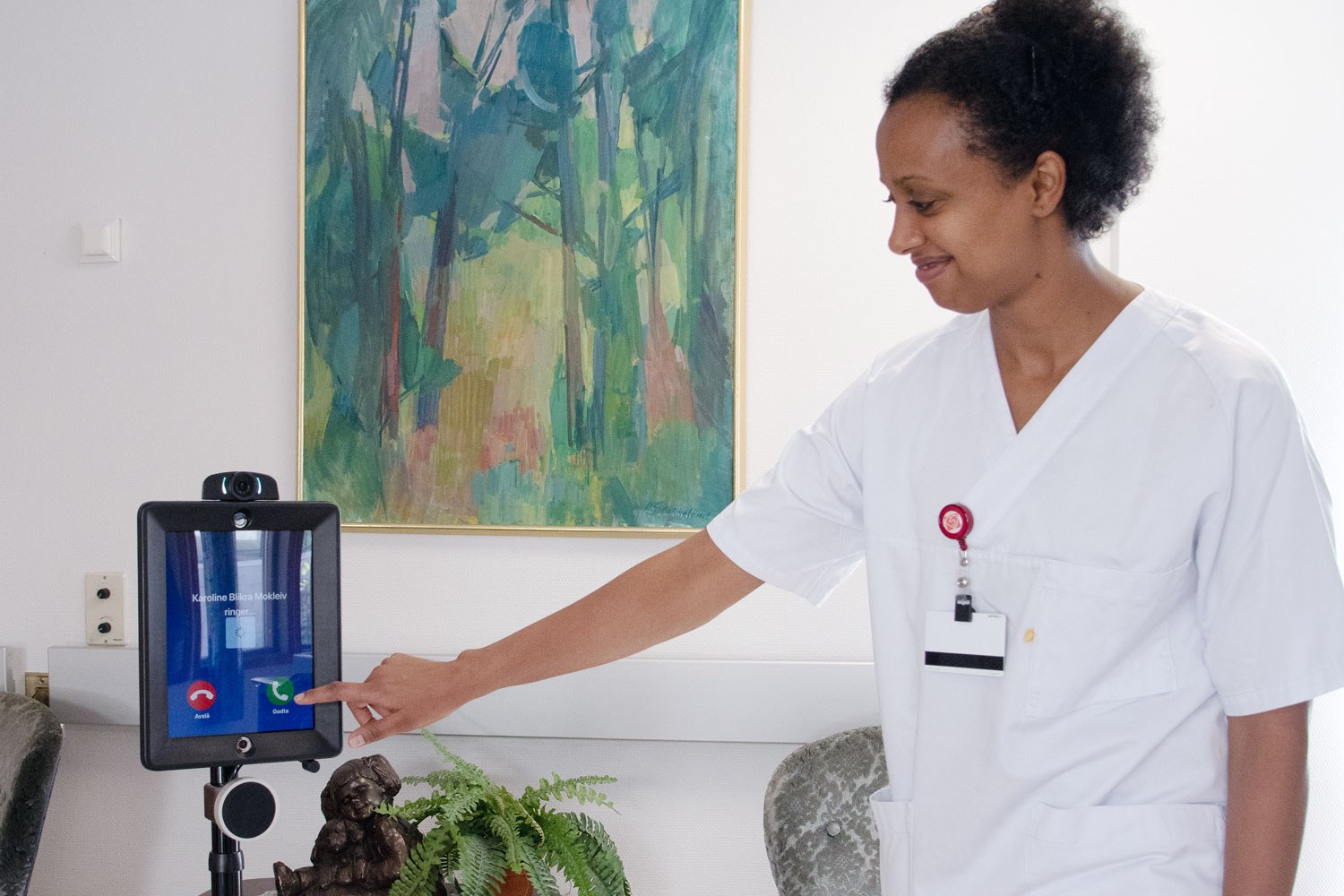
Health tech sector sees international interest
International health companies are turning to western Norway as an excellent place for developing new services for patients.
This article is written by INVEST IN BERGEN.
The west coast of Norway is home to a thriving community of health tech companies, represented by the Norwegian Smart Care Cluster organization.
These companies are developing technology that could improve the lives of patients, and help the elderly to stay in their own homes for longer.
Tone Skår, NSCC’s Department Manager in Bergen, explains that there are several reasons why foreign companies are showing an interest in this growing sector. “Firstly, Norway is one of the most digitalized countries in the world, and our citizens are already used to accessing many public services online,” she says.
Secondly, the Norwegian government is committed to providing its elderly citizens with a better quality of life. “We are one of the countries that has come furthest in adapting our healthcare system so that care takes place in the home rather than in hospital,” notes Skår.
The country is exploring the use of new technologies such as sensors to monitor the health of elderly people, and video systems that allow physicians to meet with patients remotely.

These new developments are being supported by a range of high-quality testing centres, such as the Norwegian Smart Care Lab in Stavanger, or e-Health Arena HVL in Bergen.
“We have already come into contact with several foreign companies that would like to conduct tests in our region,” says Skår. “In some cases, they are also interested in starting up a local branch here.”
She adds that once foreign businesses have established a presence in Norway, they can also apply for funding through organizations such as Innovation Norway. This is especially the case if they are developing new products or services where there is a genuine market need.
Bergen’s new health innovation centre
In addition to its range of testing facilities, Bergen will soon be welcoming a brand new Health Innovation Centre that will boost the city’s health tech sector.
The centre will offer 2,500 m2 of laboratories and offices, including a dedicated incubator for innovative healthcare startups.
According to Marit Hagland, NSCC’s Project Leader for the Norwegian Smart Care Lab, this type of innovation will play a key role in the health care system in future.
“In a few years’ time we will be facing a situation where we won’t have enough doctors and nurses to take care of Norway’s ageing population,” Hagland explains.
“We need to respond with innovation, and this is something the public sector can’t do on its own. We need to work with entrepreneurs who have good ideas about how to meet these challenges.”

One of the NSCC’s main goals is to support entrepreneurs on the road from idea to market. In the health sector, this journey can be fraught with difficulties.
“Companies will need to get to grips with a long list of tests and approvals before they can launch their products out in the market,” says Hagland. “The NSCC is working on new ways to simplify this journey for entrepreneurs.”
The organisation’s painstaking work with regulators, health authorities, and other partners is now beginning to bear fruit. A new generation of health startups are beginning to emerge in Greater Bergen along with other locations in western Norway. This includes exciting companies such as Motitech, Medzys and Grasp.
With the country’s digital population and wealth of testing centres, it’s only a matter of time before these startups are joined by some international players too.
This article is written by INVEST IN BERGEN. Invest in Bergen is the local Investment Promotion Agency (IPA) in Greater Bergen. They can assist you in finding business opportunities in the region and support international and national companies to settle in Greater Bergen and in Vestland County. READ MORE ABOUT INVEST IN BERGEN




